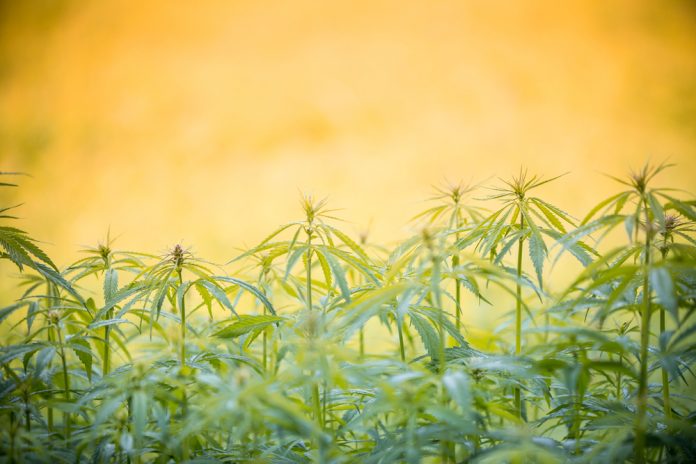CANADA, October 2 2019 (ANALYTICALCANNABIS) Researchers at Western University, Canada, have uncovered the exact molecular mechanisms that cause CBD to block some of the negative psychiatric side effects associated with high levels of THC in cannabis.
Their study, the results of which were recently published in the Journal of Neuroscience, identified extracellular-signal regulated kinase (ERK), a molecule found in the brain’s hippocampus, as having a critical role in the triggering and mediating of THC’s associated psychiatric side effects. The action of this molecule, researchers say, suggests a potential mechanism through which CBD may work to counteract the negative effects of THC.
From previous research, CBD was already known to protect the brain from the harsher effects of THC – such as psychosis, paranoia, and anxiety – but until now, the exact physiological mechanisms behind this protection were largely unknown.
CBD appears to curb anxiety behaviors when paired with THC
The study used rats as an animal model to investigate the role of the ERK pathway in triggering the neuropsychiatric effects associated with high levels of THC.
The researchers observed that rats given doses of THC had higher levels of activated ERK, and showed more anxiety behaviors than the control population, which was not given any amount of cannabinoid. Rats given THC were also more sensitive to fear-based learning than the controls.
In contrast, rats that were given both THC and CBD were far more like the control group: they exhibited normal levels of activated ERK, and generally showed less anxiety behavior, and were less sensitive to fear-based learning than those given THC alone.
“For years we have known that strains of cannabis high in THC and low in CBD were more likely to cause psychiatric side effects,” said Steven Laviolette, PhD, one of the study authors and a professor at Western’s Schulich School of Medicine & Dentistry, in a press release. “Our findings identify for the first time the molecular mechanisms by which CBD may actually block these THC-related side effects.”
From their observations, the research team believe that CBD can functionally block THC from over-stimulating the ERK pathway in the hippocampus, which then prevents the compound from inducing its negative psychiatric side effects.
“Our findings have important implications for prescribing cannabis and long-term cannabis use. For example, for individuals more prone to cannabis-related side-effects, it is critical to limit use to strains with high CBD and low THC content,” said Laviolette. “More importantly, this discovery opens up a new molecular frontier for developing more effective and safer THC formulations.”
The role of CBD in this interaction
Interestingly, researchers also concluded that administration of CBD alone appeared to have no meaningful effect on the ERK pathway.
“CBD by itself had no effect,” confirmed lead author Rodger Hudson, PhD candidate and Vanier Scholar at Western University, in a statement.
“However, by co-administrating CBD and THC, we completely reversed the direction of the change on a molecular level. CBD was also able to reverse the anxiety-like behavior and addictive-like behavior caused by the THC,” said Hudson.
The research group reports that they intend to carry out more studies in the future, and that they hope these future investigations will be able to fully characterize the specific features of this molecular mechanism. Ultimately, the researchers are looking to examine possible ways to formulate THC solutions that give rise to fewer problematic side effects, and to improve the efficacy of CBD-derived therapeutics.
One important caveat to keep in mind is that this study was conducted on rats, not on humans. While this animal model did produce results that would seem to further the theory that CBD can help to treat ailments such as anxiety – especially anxiety disorders caused by chronic use of high-THC cannabis – the research is still in its early stages.
Further research on human study participants is needed in order to properly assess the effects of CBD on THC-related psychiatric complications. However, as a whole, the study is a large and important step in better understanding the effects of cannabis and its constituent cannabinoids on the brain.







